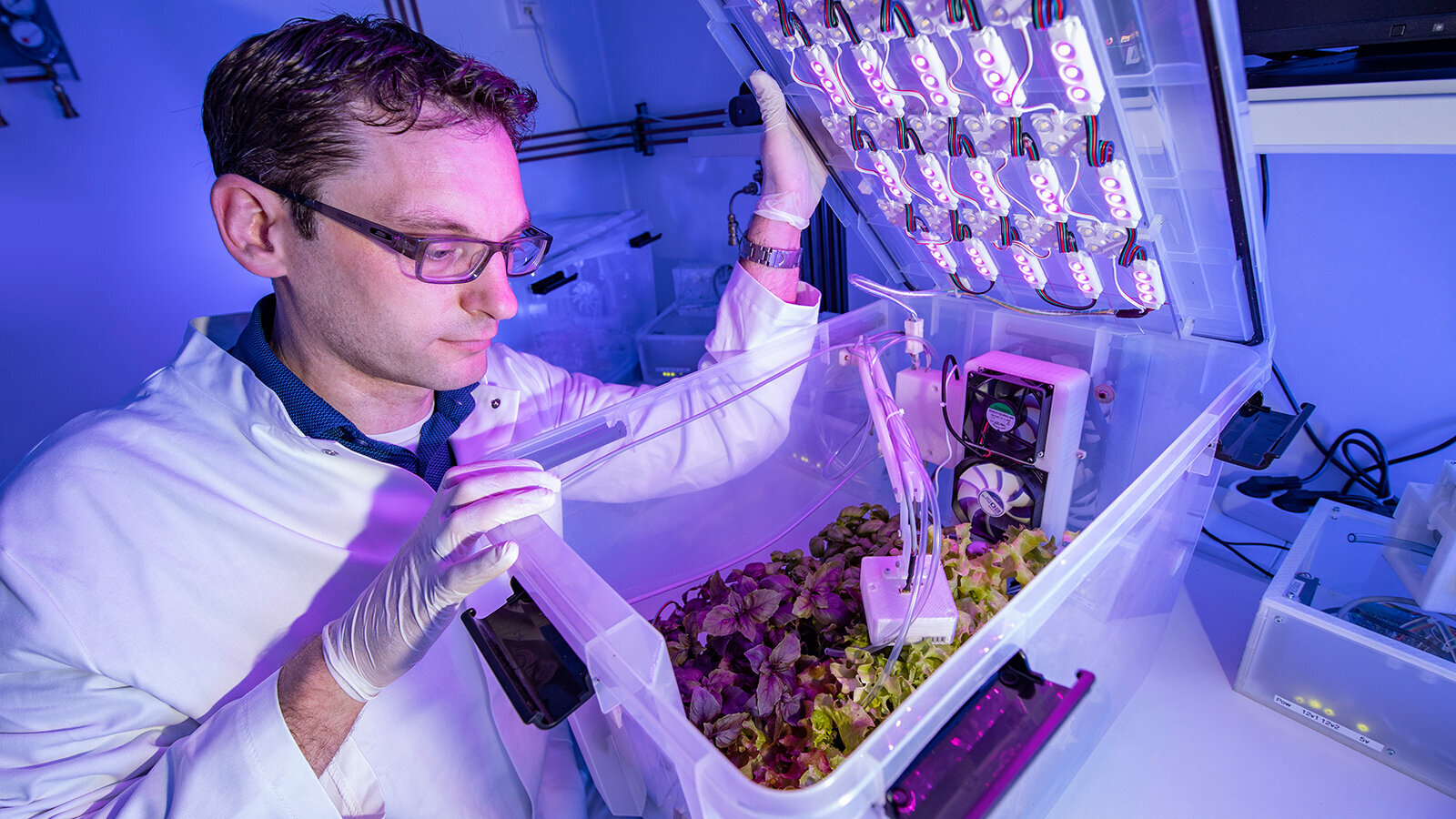Chemnitz University of Technology Conducts Research on AI-Based Monitoring of Crop Production
New sensor systems for the production of high-quality and healthy plant-based food with significant reduction in resource footprint – Free State of Saxony supports the research project of the Professorship for Automatic Control and System Dynamics at Chemnitz University of Technology with 590,000 euros
-

Prof. Dr. Stefan Streif, head of the Professorship of Automatic Control and System Dynamics, controls the irrigation, lighting spectrum and aeration of a hydroponic plant culture in the special laboratory for networked agricultural systems at Chemnitz University of Technology. This laboratory is also used in the ResKIPP project. Archive photo: Jacob Müller
In order to meet the increasing demand for food for the growing global population and to be resilient against crop losses due to climate change, global crises, and pandemics, new farming methods are required in Germany. At the same time, the use of fertilizers, pesticides, and antibiotics must be reduced to protect the environment and consumers. With this background, scientists from the Professorship for Automatic Control and System Dynamics (headed by Prof. Dr. Stefan Streif) at Chemnitz University of Technology are developing sustainable solutions for the production of high-quality and healthy plant-based food to reduce the overall resource footprint.
"Growing crops under controlled conditions increases resilience, decouples production from seasons and climate, and reduces the land use. However, due to high technological requirements, this leads to significant price increases for the necessary technology and qualified staff, making this approach often uneconomical in practice," assesses Streif. Therefore, he and his research team aim for robust, flexible, and cost-effective monitoring in the newly launched "ResKIPP – Resilient and AI-Based Plant Production Monitoring" project. "For example, automating a sensor system, such as automatic sensor calibration and reconfiguration during sensor failures, is intended to reduce the need for skilled personnel in plant production," says Streif, explaining one of the research approaches. Additionally, linking process models and measurements from different sensors using artificial intelligence and control engineering methods should allow the use of more affordable sensors, thereby reducing technology costs.
The ResKIPP project is funded by the Saxon State Ministry for Science, Culture, and Tourism with approximately 590,000 euros until December 2025.
For further information, contact Prof. Dr. Stefan Streif, tel. 0371 531-31899, e-mail stefan.streif@etit.tu-chemnitz.de.
(Author: Mario Steinebach / Translation: Brent Benofsky)
Matthias Fejes
18.10.2023




